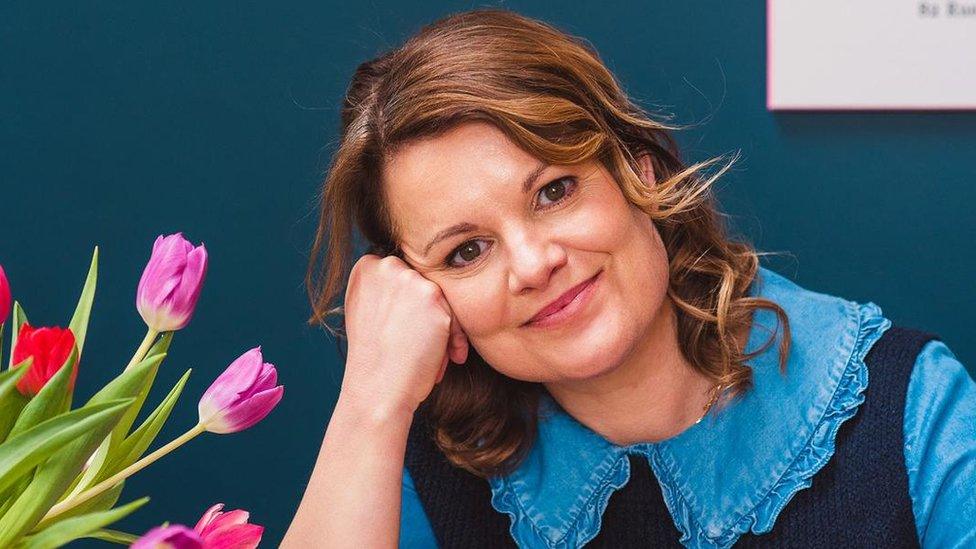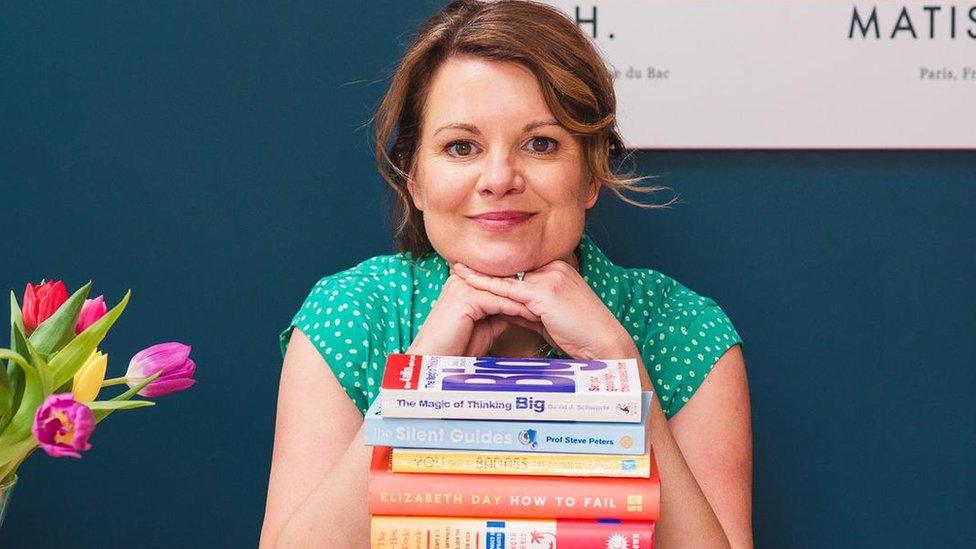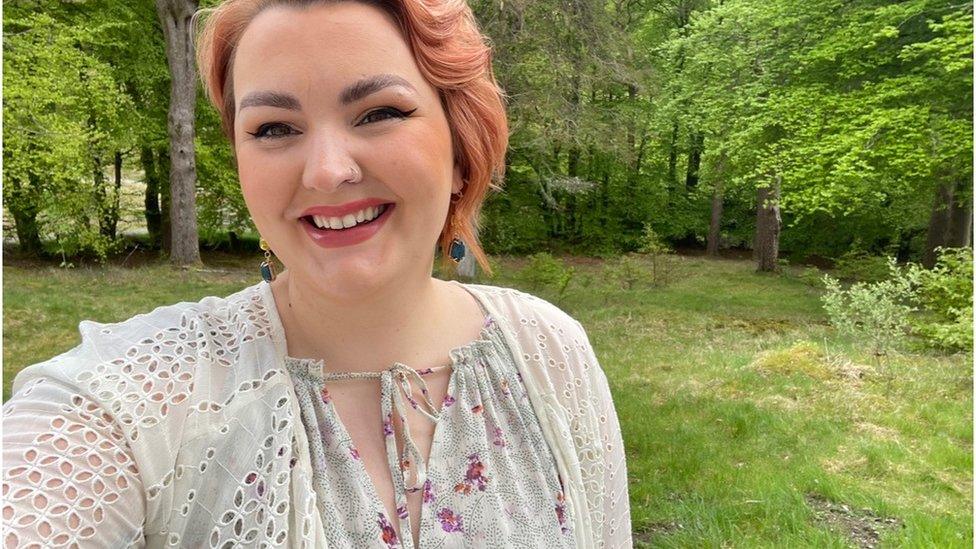Bristol woman opens up about ADHD diagnosis during menopause
- Published

Louise Taylor says there need to be more conversations on how menopause can make ADHD symptoms worse
A woman has opened up about her late ADHD diagnosis, after experiencing an "air of chaos" throughout her life.
Louise Taylor, 47, from Bristol, got the news during perimenopause aged 45, after discovering the condition ran in her family.
She experienced heightened emotional dysregulation, insomnia and debilitating brain fog.
"It was a shock. ADHD had never come up on my radar until now," she said.
Ms Taylor and her daughter both discovered they had the condition after the pandemic.
"I just put it all down to menopause, feeling like I had no motivation. It all made my emotions a lot worse.
"We'd just come out of lockdown and my daughter was also struggling with her emotions.
"My brother got diagnosed and found out it tends to run in families so I got tested along with my daughter."
'Air of chaos'
Ms Taylor said the diagnosis made her understand why she found school difficult and struggled to keep up with homework.
"There was always this air of chaos. If I had a long deadline I had to have that air of panic and threat to get things done last minute," she said.
"There was generally a feeling of missed potential. I thought I was just always flaky.
"None of this would've happened if my brother had not had that diagnosis. He's changed my family's life," she added.

Louise Taylor was diagnosed with ADHD at 45-years-old
Dr Sally Cubbins, from the Royal College of Psychiatrists, said women with ADHD "often report that their symptoms are exacerbated during perimenopause".
"This may be caused by hormonal changes which can also impact the effectiveness of some ADHD treatments.
"Women and girls with ADHD may therefore experience similar difficulties during their menstrual cycle or pregnancy.
"We need more research into this area to help improve our understanding of how ADHD affects women and how best to treat it," she added.
Ms Taylor said there needed to be a wider conversation to raise awareness of how menopause and ADHD affect each other.
"Especially because it can be tricky telling the difference between them.
"Symptoms are exacerbated by hormones, so puberty, pregnancy and menopause can have a huge impact on people with ADHD," she added.

What is ADHD and ADD?
ADHD stands for Attention Deficit Hyperactivity Disorder and ADD stands for Attention Deficit Disorder.
There are two main areas of difficulty associated with ADHD and ADD:
Inattention - This involves forgetting things, difficulty concentrating, organising or focusing on what someone is saying
Hyperactivity and impulsivity - Symptoms include struggling to stay still, fidgeting, interrupting people, overtaking people in a queue, not waiting their turn, or a lack of danger awareness
Medication in the form of tablets taken orally combined with therapy are considered the best way to deal with the condition, according to the NHS, external.
Stimulants such as methylphenidate are the most commonly used medication for the disorders.

Ms Taylor said "despite the fact it's been scary" she has since become an ADHD coach.
"There are so many people out there who are struggling.
"The waiting lists are chock-a-block but a diagnosis is really important, so if you have a gut feeling about it and are not sure, get on the list.
"You can even start doing so many things before you get the diagnoses like moving well, eating well, getting more sleep," she said.

Follow BBC West on Facebook, external, X, external and Instagram, external. Send your story ideas to: bristol@bbc.co.uk , external
- Published22 January 2023
